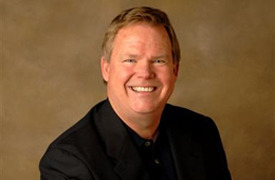Power Communication! Three Life Lessons From a Used Car Salesman

For the last twenty years I’ve been buying my cars from the same sales professional, and for good reason. When it comes to communication, rapport and relationships he shines. However, a month ago my mom (who lives in Memphis, TN) asked my sister to help find her a car. It turns out my sister found a car near me and wanted me to check it out.
I made an appointment to see the car for my mom and met Mike, the owner of a small car lot. The thing is, I went in with preconceived notions against small car lots so Mike had his work cut out for him. Mike said hello and told me he had the car out front ready for me to drive. Then he gave me the keys, saying, “Take your time, no need to hurry back.” To my surprise, he didn’t ask for my driver’s license to make a copy of it.
When I returned, I asked Mike a few questions. Then I told him I was ready to do the paperwork, but my mom wanted to send him a check in the mail. He said that was fine and I could take the car that day. I didn’t know what to say. So I said, “You let me drive the car without you going with me and without making a copy of my driver’s license. Now you’re telling me I can take the car long before you get a check from my mom?” Mike simply replied, “I’ve been doing this a long time and I’m pretty good at knowing whom I can trust.”
Lesson One: If you want trust, give it first.
I told Mike my wife would have to bring me back another day to get the car, and that I was leaving the next day on business. He said he’d put the car in the back with a “Sold” sign on it. That intrigued me because I wondered if I changed my mind about the car (he hadn’t even asked for a deposit) he might lose the opportunity to sell the car to someone else while he kept it for me.
Mike is very successful in his business partly because he trusts the people he does business with. I’m sure he doesn’t extend the same level of trust to everyone and I’m not saying you should either. I’m saying that if you want to have great relationships, you need to be willing to lead the way and extend trust first—in whatever way and on whatever level you can with any given person. If you think your boss doesn’t care about your success at work or if you think a family member or friend doesn’t respect you, you need to have very solid evidence to back that up. Even then, you might be able to improve the relationship by looking for ways to build trust.
Lesson Two: When you treat people well, most people will respond in kind.
Mike used to be a Vice President over ten dealerships and I’m sure he learned a lot about people during that time. It’s likely he learned long before he met me that the people around us tend to live up to our expectations, good or bad. Mike didn’t say, “I’m going to leave this relationship up to Alan and see what he does with it.” No, he led the way. The question we can ask of ourselves is, “Do I lead the way in building and nurturing my relationships?”
Whether it’s a new relationship or an established one, you will never go wrong by taking responsibility for leading the way in how you communicate and interact with others. That’s true especially when someone lets you down or mistreats you in some way. Yes, you need to be assertive and have boundaries, absolutely. However, even when we need to assert ourselves and enforce boundaries, we can do that in a way that allows the other person to maintain their dignity and that makes it easier for them to make things right.
Lesson Three: When it comes to business, everything is personal.
The saying, “It’s not personal, it’s business” couldn’t be more wrong. Anytime people are involved (and that’s every time) it’s always personal. Maya Angelou taught us long ago, “I've learned that people will forget what you said, people will forget what you did, but people will never forget how you made them feel.” If we kept that in mind at all times, how would that change how we communicate and build relationships with those around us?
The fact is that when it comes to business, family, friends or strangers, everyone wants to feel important. Just because your boss has a big title and is paid more than you doesn’t mean he or she feels as important or respected as he or she would like. Your co-worker that seems to be the star at work still needs to be recognized and valued by those around him or her—including you. The family members and friends we can easily take for granted want the same as we do—to feel important, respected and valued.
- Alan Allard, Executive Coach
Helene Lerner's Blog
- Helene Lerner's profile
- 9 followers



